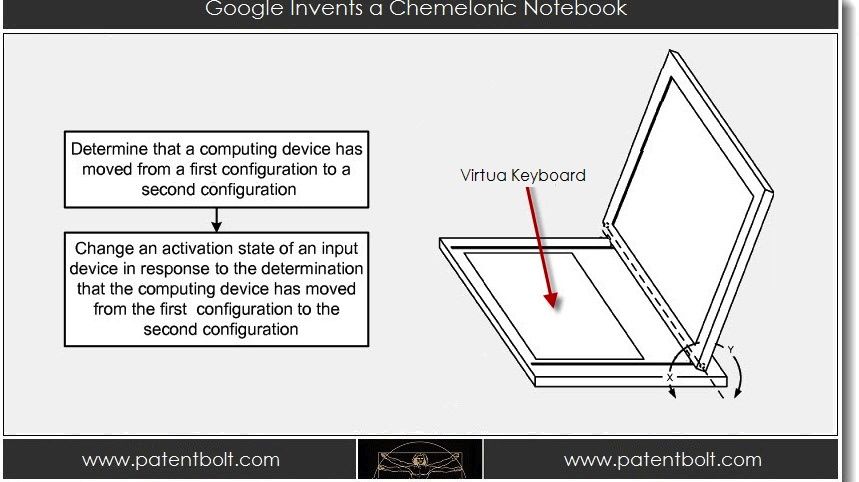Google's transforming laptop-tablet patent could be the next Nexus
One analyst doesn't think it's a good idea, though

Sign up for breaking news, reviews, opinion, top tech deals, and more.
You are now subscribed
Your newsletter sign-up was successful
A new Google patent surfaced, and it seems to detail a device that could become a Google Nexus-branded transforming laptop.
The patent, titled "moveable display portion of a computing device," describes a transforming laptop-tablet hybrid with the capability to flatten into a tablet and expand into laptop without any additional pieces.
The new device can even swivel on a corner, although the purpose of this function is anyone's guess.
With Google's lines of Chromebooks and Android devices continuing to expand, this new patent could indicate plans to bring Chrome OS and Android Jelly Bean together into one comprehensive Google Nexus device.
But at least one analyst thinks it's a terrible idea.
Google is competing with itself
J. Gold Associates analyst Jack Gold answered simply "No" when asked whether he thinks the device described in Google's patent is a good idea.
In Gold's opinion, the Android ecosystem is becoming far too complex, and it wouldn't make sense for Google to add yet another possible form factor to the mix.
Sign up for breaking news, reviews, opinion, top tech deals, and more.
"The issue is that there are so many different form factors and different models," Gold said.
"On the other hand, if you get too complicated and too complex, especially if Google's doing it, one, you compete with your ecosystem, and two, people don't know what to make of it."
In Google's latest patent, the screen slides forward over the keyboard and then lies flat to transform the device into a touch tablet. But Gold says that design may be too complicated and prone to breaking down.
"What people want - what people mostly want today - is simplicity," he said.
"They also want functionality, but you know, if it's something weird, you have a hard time selling it."
Past transforming laptops haven't been terribly successful for a number of reasons, Gold said, one being that they simply don't work very well.
He added that the Microsoft Surface's solution - which adds a physical keyboard to the tablet's magnetic cover - is "actually pretty elegant."
"There's no connector to break. It's fairly simple and straightforward," he said.
"Simple is good," he concluded. "It really is, when you start talking about these devices."
Via Slashgear
Michael Rougeau is a former freelance news writer for TechRadar. Studying at Goldsmiths, University of London, and Northeastern University, Michael has bylines at Kotaku, 1UP, G4, Complex Magazine, Digital Trends, GamesRadar, GameSpot, IFC, Animal New York, @Gamer, Inside the Magic, Comic Book Resources, Zap2It, TabTimes, GameZone, Cheat Code Central, Gameshark, Gameranx, The Industry, Debonair Mag, Kombo, and others.
Micheal also spent time as the Games Editor for Playboy.com, and was the managing editor at GameSpot before becoming an Animal Care Manager for Wags and Walks.
